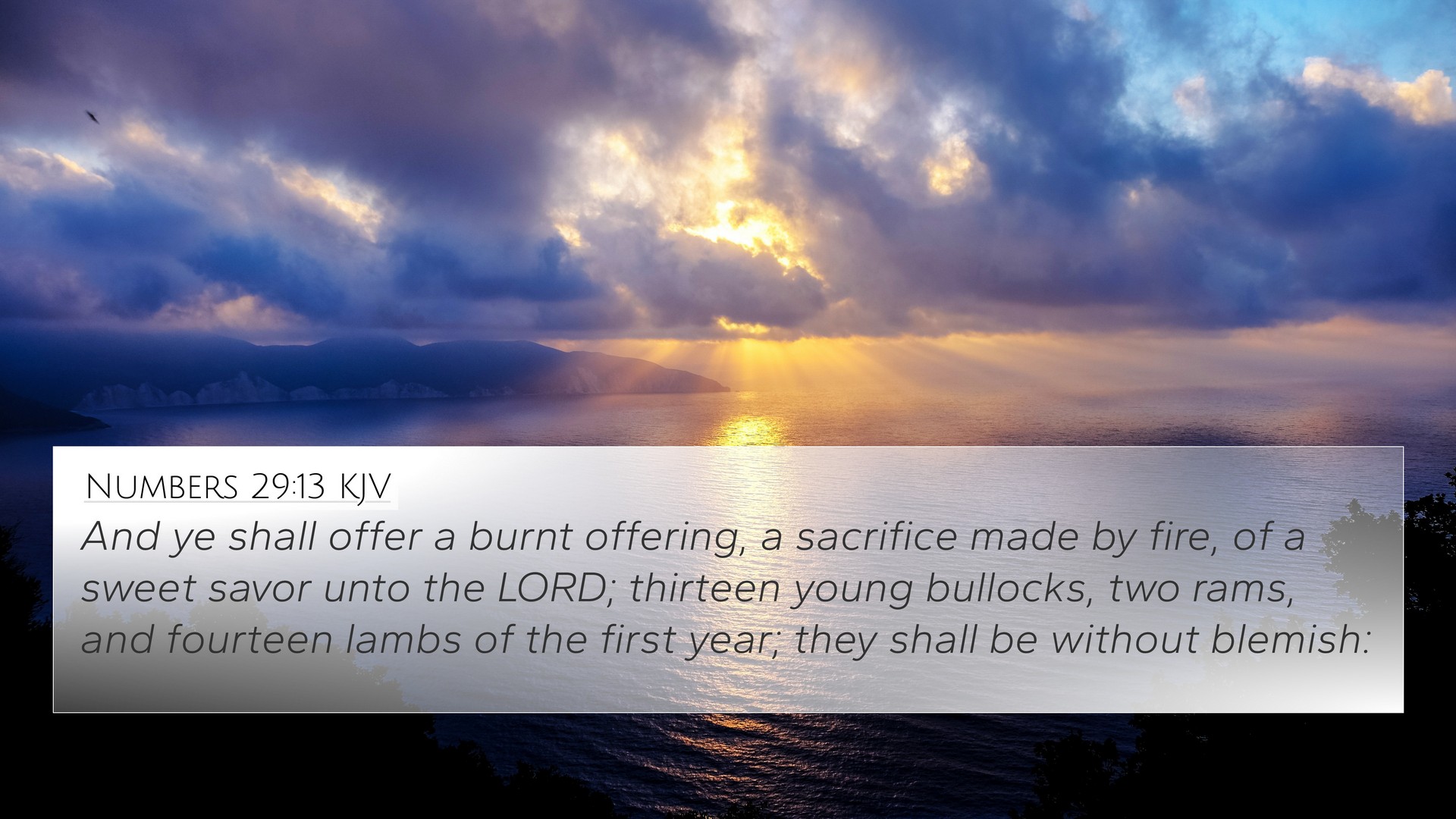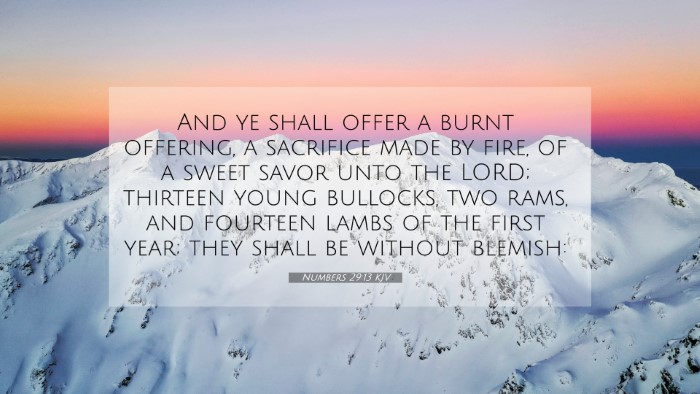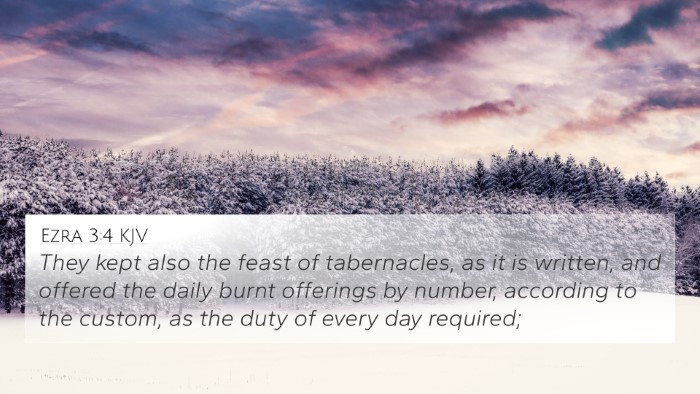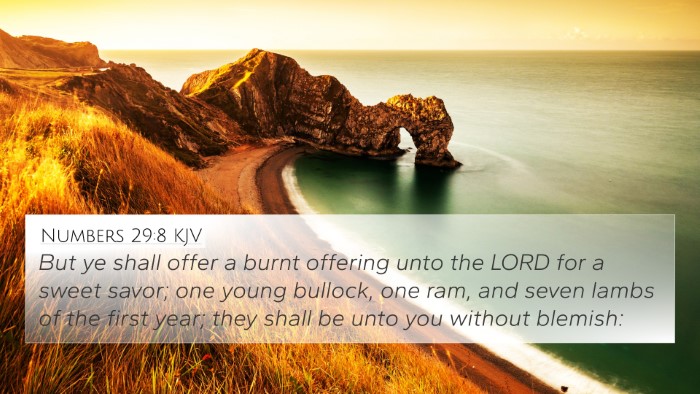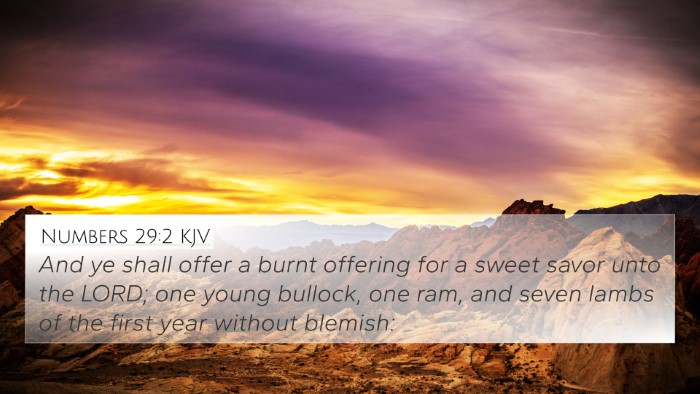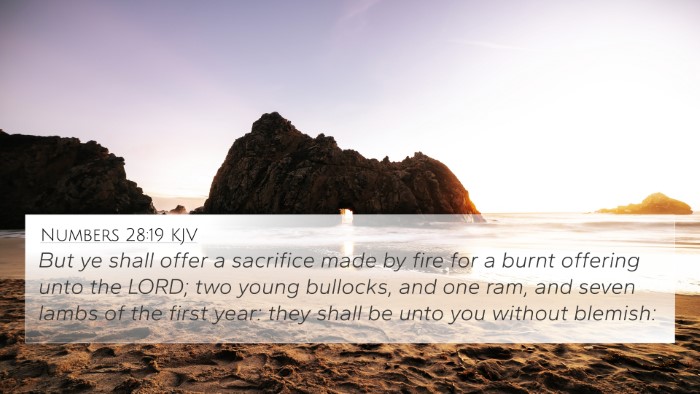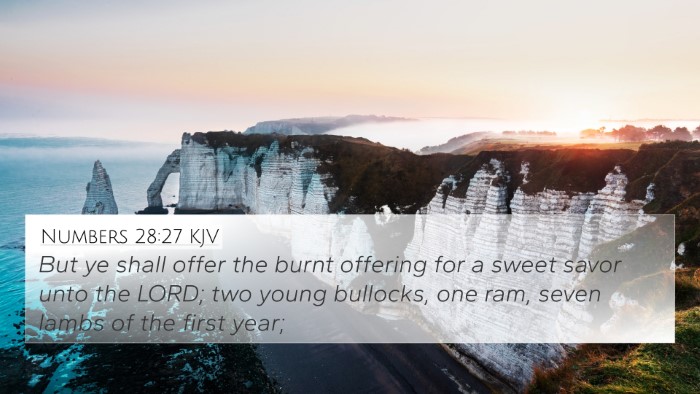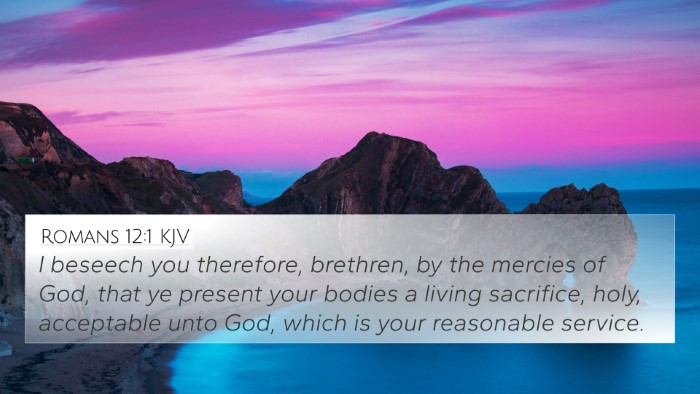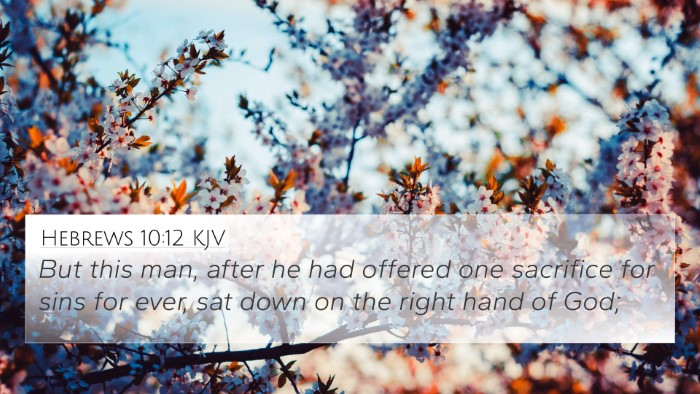Understanding Numbers 29:13
Verse: Numbers 29:13 - "And ye shall offer a burnt offering, a sacrifice made by fire, of a sweet savour unto the LORD; thirteen young bullocks, two rams, and fourteen lambs of the first year: they shall be without blemish."
Overview of the Verse
This verse describes the requirements for burnt offerings during the Feast of Tabernacles. It emphasizes the need for quality in offerings and the quantity prescribed, showing the Israelites' commitment to God through their sacrifices.
Commentary Insights
-
Matthew Henry:
Henry highlights the significance of the burnt offerings as a sweet savour to God, indicating the acceptance of the offerings as a pleasing act of worship. He notes that the specific number of sacrifices, particularly the thirteen bullocks, signifies completeness and fullness in the worship act during this joyful occasion.
-
Albert Barnes:
Barnes elaborates on the symbolism behind these sacrifices, asserting that the thirteen young bullocks represent a provision of abundance reflecting God's generosity towards His people. The instructions for the offerings also serve to emphasize the divine order and reverence that the Israelites must maintain in their worship practices.
-
Adam Clarke:
Clarke provides a detailed analysis of the sacrificial system, explaining how these offerings were intended to atone for sins and bring the worshippers closer to God. He notes the importance of the lambs as offerings of purity, which reflect the need for holiness in approaching the Lord.
Biblical Context
The verse situates itself within the broader narrative of the Israelites' journey towards the Promised Land, specifically focusing on their religious obligations. The Feast of Tabernacles is a time of celebration, and these offerings underscore the importance of gratitude and acknowledgment of God's provision.
Bible Verse Cross-References
When studying Numbers 29:13, it is beneficial to consider the following cross-references that resonate thematically or contextually:
- Exodus 29:18 - "And he shall burn the whole ram upon the altar: it is a burnt offering unto the LORD: it is a sweet savour, an offering made by fire unto the LORD."
- Leviticus 1:9 - "But his inwards and his legs shall he wash in water: and the priest shall burn all on the altar, to be a burnt sacrifice, an offering made by fire, of a sweet savour unto the LORD."
- Hebrews 10:6 - "In burnt offerings and sacrifices for sin thou hast had no pleasure."
- Romans 12:1 - "I beseech you therefore, brethren, by the mercies of God, that ye present your bodies a living sacrifice, holy, acceptable unto God, which is your reasonable service."
- Psalm 51:17 - "The sacrifices of God are a broken spirit: a broken and a contrite heart, O God, thou wilt not despise."
- Isaiah 1:11 - "To what purpose is the multitude of your sacrifices unto me? saith the LORD: I am full of the burnt offerings of rams, and the fat of fed beasts; and I delight not in the blood of bullocks, or of lambs, or of he goats."
- Revelation 5:12 - "Saying with a loud voice, Worthy is the Lamb that was slain to receive power, and riches, and wisdom, and strength, and honour, and glory, and blessing."
Thematic Connections
Linking Bible Scriptures: The aspects of sacrifice in Numbers 29:13 find their roots in earlier texts and resonate in later theological discussions. The connections between the sacrificial system established in the Old Testament and the New Testament teachings on sacrifice reveal a continuous dialogue about atonement and worship.
Comparative Bible Verse Analysis
This verse provides an excellent opportunity for a comparative analysis of how burnt offerings evolved from the Old Testament to New Testament interpretations. Through various lenses, we can see:
-
Old Testament Sacrificial Practices: The complexity and ritual of sacrifices as seen in Leviticus, where detailed descriptions accompany each ceremony.
-
New Testament Fulfillment: Understanding Jesus as the ultimate sacrifice alters the perception of these ancient practices, fulfilling their purpose and symbolism.
Tools for Bible Cross-Referencing
For those engaging in deeper study, employing tools such as a Bible concordance or a Bible cross-reference guide can significantly enhance understanding. These resources assist in identifying connections across verses and themes effectively.
Conclusion
Numbers 29:13 encapsulates significant theological implications regarding worship and sacrifice in the Israelite tradition. Understanding its meaning through the lens of commentaries and cross-references enriches one's study of the scripture. The ancient practices laid out in the Old Testament maintain their relevance in discussions concerning sacrifice, worship, and the nature of God.
